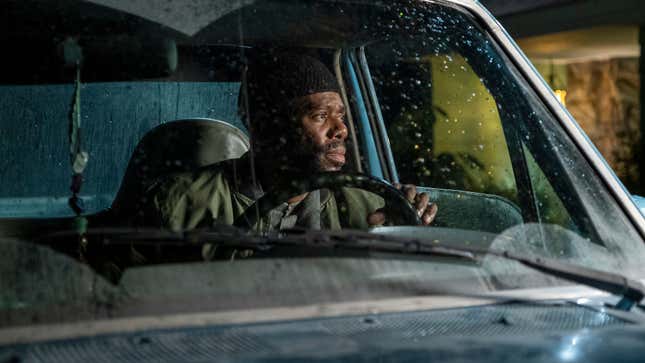
While I struggled with Euphoria’s first season and ultimately found its execution to be uneven—all style, little substance—its maximalist tendencies weren’t what pushed me away from the show. In fact, in its flashier moments, I found Euphoria to be intensely compelling and immersive. But its aesthetics were often hoisted by weak foundation, many of its characters struggling to really break free from their slotted tropes. “Trouble Don’t Always Last” marks an extreme change of pace for Euphoria, and it’s an impressive one. It’s likely that the very stripped-down episode is the product of being shot and produced during the COVID-19 pandemic, but while this is a very different Euphoria, it doesn’t ultimately feel like it’s missing something.
The best character work on the show has always nestled in the relationship between Rue and Jules. They long for each other. They understand each other. Their intense teen romance sometimes teeters into codependency, especially since Rue hangs her sobriety on Jules. Season one ends with Rue relapsing big time after Jules hops on a train out of town. “Trouble Don’t Always Last” takes place shortly after that relapse, with Rue meeting up with her sponsor Ali at a diner after a meeting. She attempts to convince him she’s sober, but he quickly figures out otherwise. And then it’s just Rue and Ali, eating pancakes and talking about life, about the all-encompassing experience of addiction, about grief and mental health and all the fucked-up parts of living in the world.
Jules’ absence is palpable felt in the special episode, which opens with a warm and cozy fantasy where Jules and Rue are together, happy, in love. Other than that, we only get pieces of Jules in the form of some texts and then Rue eventually opening up to Ali about her and their relationship. The fantasy opening is inspired by Jules own words to Rue from before. Rue feels emotionally betrayed by Jules, and it isn’t entirely fair but it isn’t entirely wrong for her to feel that way either. It’s complicated and messy, and Euphoria lets Rue be complicated and messy. She’s not wholly defined by her addiction, but the show also doesn’t pull any punches in the way it portrays addiction as something that touches so many different parts of her life and her reactions to things.
The fantasy sequence at the top of the episode plays on conventional expectations of a “Christmas special,” but even Euphoria’s marketing campaign has emphasized that this was never going to be your typical gushy holiday special. In fact, the fantasy is quickly punctured. Even in the imagined world, Rue ends up using. Then we’re dropped into the diner, into reality, into a story more real and complicated than a holiday fairytale. Jules is gone. Rue is high. There’s just her and Ali and their stories.
Euphoria presents a layered story about addiction here. Rue and Ali can relate about a lot of their experiences, and there’s power in that connection. Rue listens to Ali more than she listens to most people. They understand each other. But their experiences also diverge, because there is no monolithic addiction experience. They might be able to relate about some things, but their lives are distinct and complex. We get more of Ali than we previously have, one phone call mid-episode telling us so much with so little.
Zendaya and Colman Domingo deliver stunning performances, and the episode absolutely demands a lot from them. Zendaya can devastate with very few words. Watching Rue unpack the memory of threatening to kill her mother makes for the most difficult part of the episode, but the script holds empathy and hope for Rue, conveyed through Ali. “Trouble Don’t Always Last”—as its title suggests—does allow room for hope and light, even as it digs into the darkest parts of its characters. Euphoria doesn’t lose itself or its characters as it burrows into that darkness. The intimacy of the camerawork makes it all feel so personal.
There’s so little blocking, so little flourish. The success of the episode really does hinge on a smart and engaging script and on Domingo and Zendaya bringing it to life with as much fervor as the flashier episodes of Euphoria evoke. Domingo delivers a killer monologue before he exits the diner to make a phone call, his exit captured in a gorgeous shot. Euphoria still finds ways to be an immersive and artful feat of visual storytelling even in a stripped-down package. It still very much feels like an episode of the show, even as it invents its own rules.
Stray observations
- It is so, so rare for a phone conversation to be well acted, and Colman Domingo delivers what probably the best phone call scene I’ve ever seen on television? He deserves so many awards for his work here.
- Zendaya also, obviously, deserves so many accolades for her work here.
- I really did want to stay burrowed in the fantasy of that opening! Which means it does its job well.